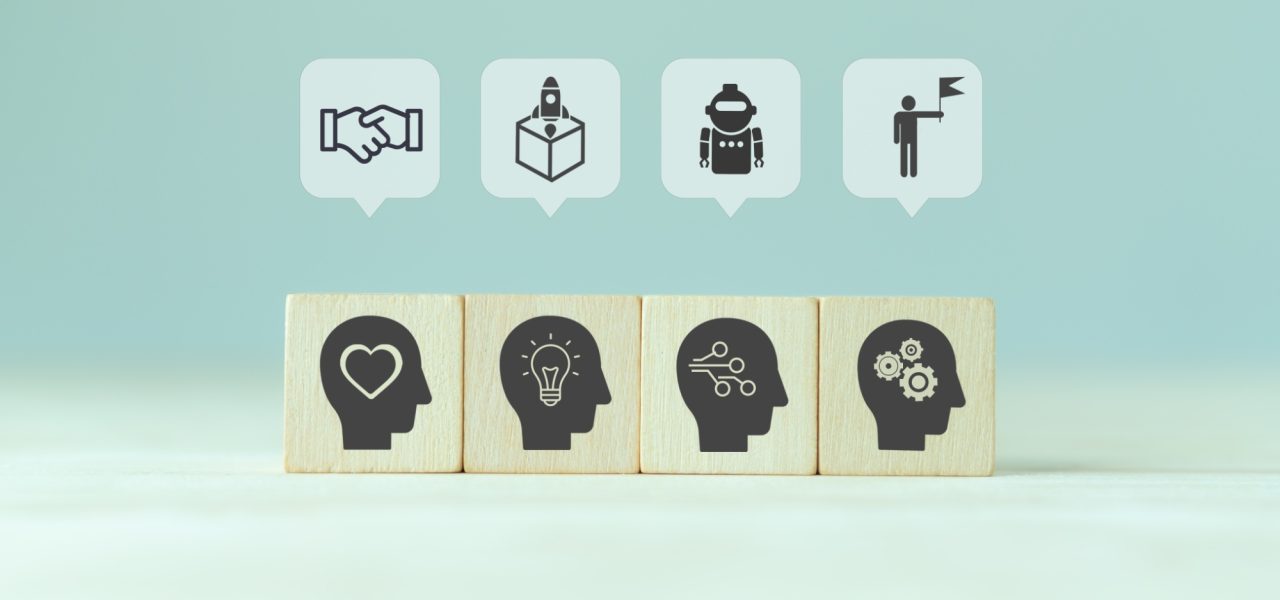The second half of the year is already underway, and with it, a trend marked by the complexity lived by companies and in the social environment, in addition to a panorama that has redefined the way of doing business.
In this context, there are five trends that we must not lose sight of:
- The AI revolution, which has evolved from being a tool to being a process enhancer in companies.
- The consolidation of ESG as a strategic element, reaching 33.9 trillion dollars of projected investment for 2026, according to a report conducted by PwC.
- The definitive normalization of hybrid work, with six out of every ten collaborators preferring this modality and four out of every ten jobs offering remote flexibility according to Gallup in its Hybrid Work Report.
- The acceleration of hyper automation, with 95% of companies facing the challenge of transforming unstructured data into actionable information according to Forbes.
- The growth of geopolitical and cyber risks that demand more resilient supply chains and robust security strategies.
These trends require a new type of leadership that combines strategic vision, technological agility, sustainability awareness and the ability to connect globally distributed teams, positioning leaders as architects of a smarter, sustainable and human business future.
This implies that things are also changing for work teams, and the abilities that are required for facing the future and preparing companies for achieving results in an increasingly complex environment are starting to be defined clearly.
In this context, there are four basic skills required for facing the future:
» 1. Knowing how to make the right questions (analytical thinking)
The emergence of AI opens amazing possibilities for taking analysis and strategy to a new level. Given this, organizations are integrating hybrid workforces, combining human and artificial intelligence.
That is, we now have the challenge and the opportunity of making use of the best of both worlds, as work can be greatly improved using the knowledge base that generative artificial intelligence makes available to us; however, the challenge lies in being able to pose the questions correctly.
Thus, people’s experience, their capacity of understanding the strategic objective behind the mass of data and the vision of the impact (what we do things for) play a key role as skills that must be fostered in individuals and teams.
» 2. Being able to adapt in an agile and fluid manner (change and flexibility)
Changes across the globe are having an impact on market behaviors. Consumers with greater access to products and services at the global level place new demands on organizations, which must anticipate this and adapt their value offerings.
It is no longer just a question of change management, companies now need to develop “a taste” for change, that is, the capability for change needs to be part of the mentality with which people join teams.
In this context, culture becomes a powerful lever which, with the right impulse, makes it possible for leaders to develop environments in which innovation and the adoption of new ways of working are natural and agreeable for teams.
Moving from a place, market, solution or sector quickly and comfortably is already a fundamental ability for organizations.
» 3. Achieving maximum potential (curiosity and learning)
Constantly questioning ourselves about new ways of achieving results, thinking of new solutions for the client, transforming culture and the way of working, is now a question of business survival.
The constant question focuses on what we can do to achieve the most from each solution, how to take the client to a different experience, where the competitive advantage lies and, above all, how to connect with the purpose of people within the organization.
This approach entails having the constant mindset of an apprentice, where paradigms are just another opportunity for finding new paths, This means that teams must achieve communication and collaboration that are so effective that they allow them to quickly adopt new ways of doing things.
» 4. Generating a deep personal connection
For change to be truly sustainable and for the skills mentioned in the previous sections to be developed, a genuine connection between people is required, where trust is the axis of the relationship, in such a way that the error deriving from experimenting with new ways of working is a lever for team growth.
This is the most important ability, not only in leaders, but in team members. Now more than ever psychologically safe environments are needed, where people can find true reasons for belonging and thus be challenged to seek better results through different schemes.
Coming years will be framed by the ability of organizations to harmonize human and artificial work, overcoming the fears of some and the limitations of others. Thus, people will surely be the center of the transformation and leadership will be the competitive advantage of successful companies.



